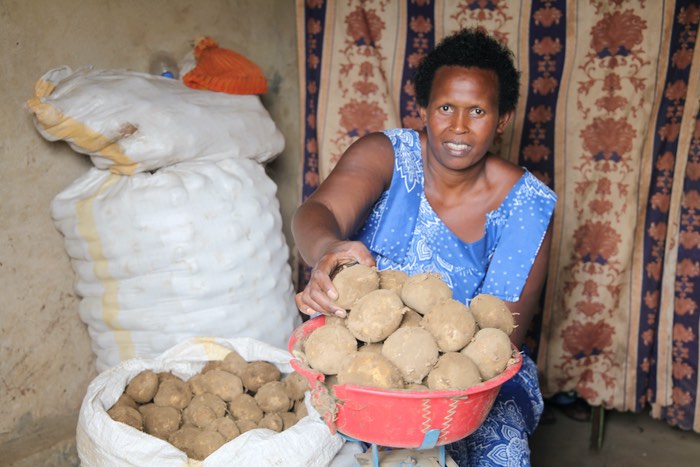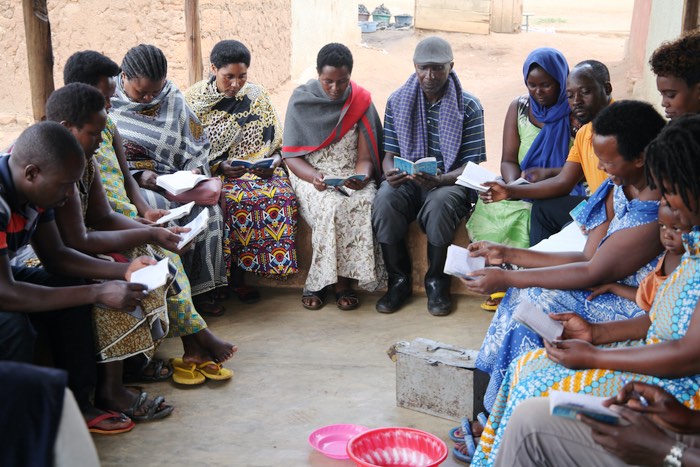
My name is Speciose Nyiramana, a Congolese refugee, and a mother who knows too well the struggle of daily survival. After fleeing my war-torn homeland, I arrived in Rwanda with nothing but uncertainty. But amidst the challenges, I found an unexpected source of hope — a Village Savings and Loans Association (VSLA) called “Twisungane,” which means “let’s help each other”. This VSLA operates in Mahama refugee camp, Kirehe district. As a mother of five, I once faced the challenge of meeting my family’s basic needs on a daily basis. However, my involvement in the “Twisungane” VSLA, a group of 30 resilient refugees, has been a turning point. This VSLA has enabled me to get a starting capital for a small business of retailing potatoes, which allows me to provide for my family. Through this programme, I was able to access start-up capital, which I used to establish a small business retailing potatoes. This not only enhanced my family’s livelihood but also fostered a sense of hope for the future. This VSLA has accumulated RWF 2.5 million, which will be disbursed as loans to individuals to launch small businesses or enhance existing ones like mine.
As the need for humanitarian aid continues to grow, the World Food Programme (WFP) recognizes the importance of providing not just immediate relief but sustainable solutions that foster self-reliance and empower refugees.
The implementation of VSLAs, in partnership with Plan International, emerges as a pathway to long-term resilience for refugees in Rwanda. Currently, WFP has supported the establishment and capacity building of 70 VSLAs that are operating across refugee camps in Rwanda, thanks to the support from USAID’S Bureau for Humanitarian Assistance (BHA) and the German Federal Foreign Office (GFFO). This has offered a supportive environment for the members to save over 50 millions FRW, allowing them to access small loans, and build financial resilience. The VSLAs with sufficient management capacity have received financial support amounting to RWF 12,460,800 to back their operations. Some VLSAs decided to engage in agriculture and livestock businesses, while others saw the assistance as fund capital to expand their capacity. WFP is striving to break the cycle of dependence while also promoting meaningful contributions to community resilience.

Andrea Bagnoli, Country Director and Representative of WFP in Rwanda, says: “The benefits of VSLAs extend beyond individual refugees, they create employment opportunities and contribute to the local economy. This fosters a more sustainable and integrated environment for both refugees and host communities, thus promoting social cohesion.” WFP’s commitment to fostering self-reliance of refugees through VSLAs, greatly contributes to the Government of Rwanda’s efforts to promote socio-economic inclusion of refugees and host communities, enhancing their access to economic opportunities on a sustainable basis. This enables refugees to not only survive but thrive.
Her success story serves as a testament to the importance of investing in long-term solutions for refugees’ livelihoods in terms of food security, nutrition, and household income.(End)
